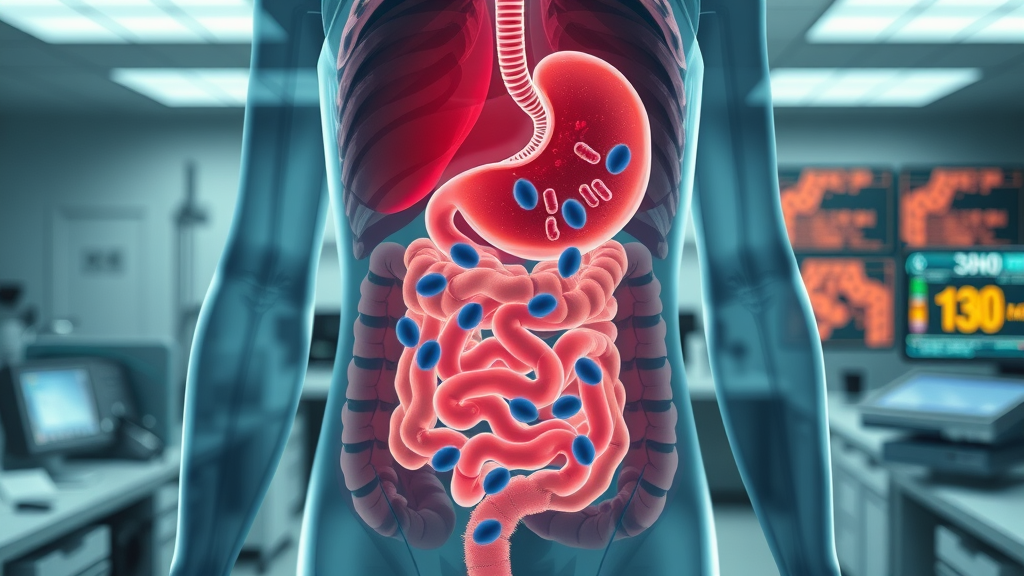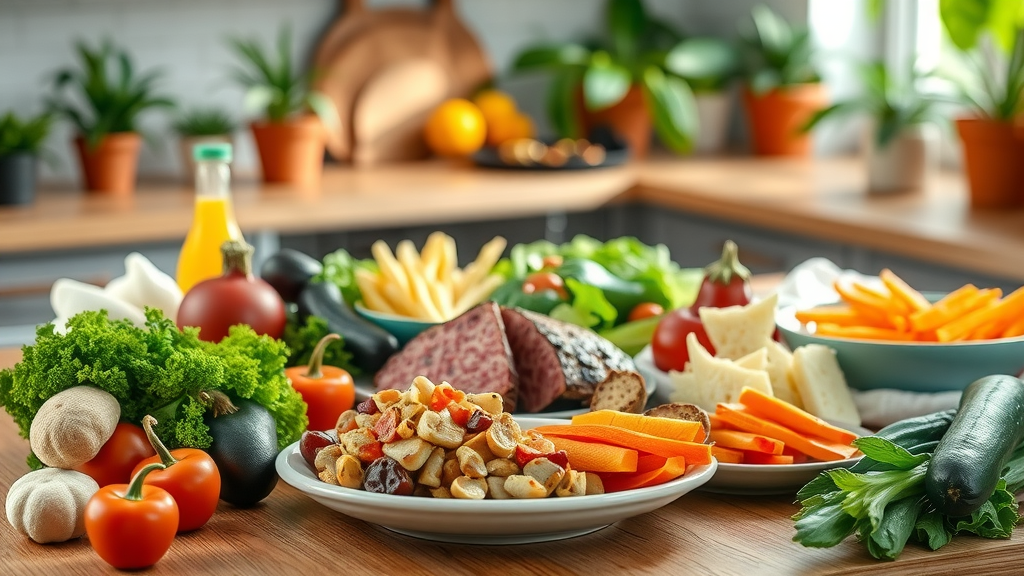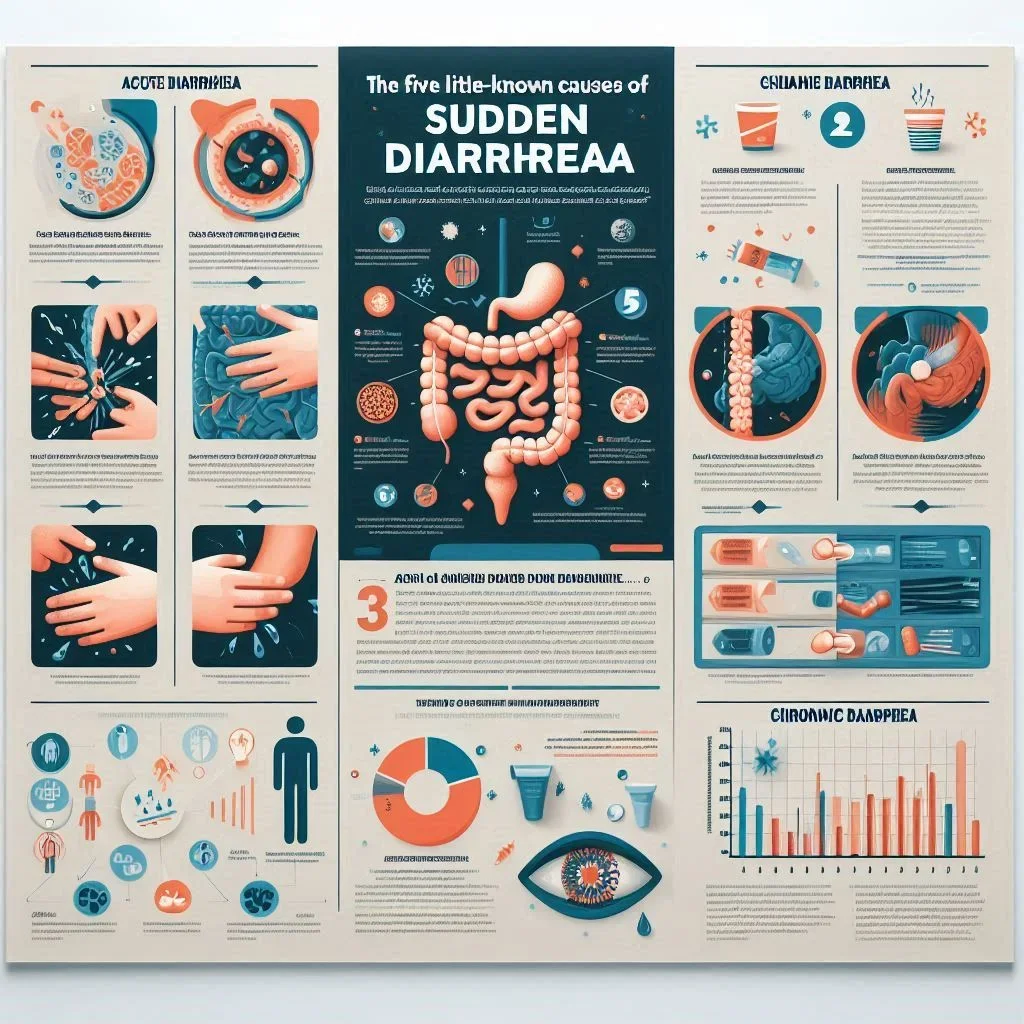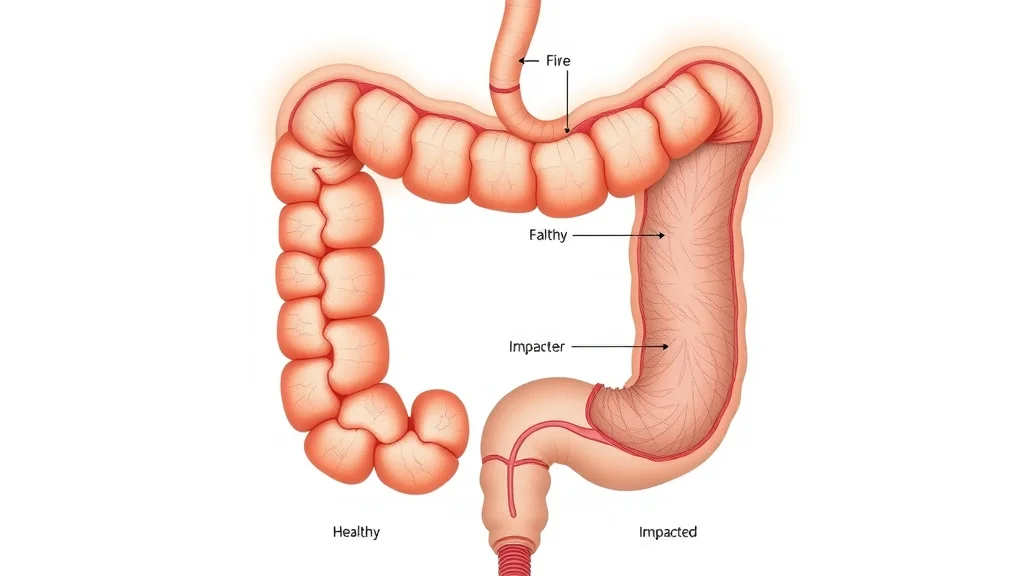
Have you ever wondered if unexplained weight gain could be linked to your gut health and the complex interactions of your intestinal bacteria? Many people associate digestive issues like small intestinal bacterial overgrowth (SIBO) strictly with weight loss or bloating—yet some notice stubborn weight gain that defies diet and exercise.
So, does SIBO cause weight gain, or is this a myth? This article challenges conventional wisdom by revealing new evidence and practical tips for anyone struggling with weight management and confusing SIBO symptoms. Read on to unravel the facts behind SIBO and weight, and arm yourself with actionable knowledge for optimal gut health.
Unveiling the Connection: Does SIBO Cause Weight Gain and Challenge Conventional Beliefs?
SIBO is often portrayed as a culprit behind persistent bloating, stomach pain, and nutrient malabsorption. But increasingly, patients and medical professionals are noticing its surprising role in weight gain. For years, the narrative was simple: SIBO = weight loss. However, new research and countless patient stories reveal a more complex reality.
Some individuals with small intestinal bacterial overgrowth report unexplained weight gain that does not respond to traditional approaches. This emerging evidence compels us to dig deeper into the link between SIBO and weight management, challenging the conventional belief that weight loss is the only digestive fallout from SIBO.
By unpacking myths and facts, we help you understand how bacterial imbalances in your digestive tract might quietly contribute to weight gain and disrupt gut health, and what you can do about it.

Understanding SIBO: What Is Small Intestinal Bacterial Overgrowth?
Small intestinal bacterial overgrowth, commonly referred to as SIBO, is a condition characterized by excessive growth of bacteria in the small intestine—a critical part of the digestive tract responsible for nutrient absorption and overall gut health. Under healthy conditions, the small intestine contains relatively few bacteria compared to the large intestine. But with SIBO, bacteria proliferate where they shouldn't, disturbing normal digestion and metabolic processes.
The gut is home to trillions of intestinal bacteria —a delicate ecosystem that affects everything from digestion to immunity, and even metabolism. When this balance tips due to factors like slow gut motility, chronic conditions, or antibiotic use, SIBO can develop. Disruptive bacteria in the small intestine can ferment food too early, leading to bloating, gas, abdominal pain , and unpredictable changes in the absorption of nutrients.
Common SIBO symptoms include persistent bloating, cramping, diarrhea or constipation, excessive gas, and sometimes nutrient deficiencies. However, SIBO is not one-size-fits-all; some experience unexpected issues like weight gain or difficulty losing weight, illustrating how intertwined the health of our gut bacteria is with our overall health. By understanding the basics of small intestinal bacterial overgrowth , we set the stage for understanding how this condition can influence body weight in surprising ways.

Does SIBO Cause Weight Gain? Examining Scientific Evidence
Emerging studies show that the question, does SIBO cause weight gain, is complex and depends on factors like the dominant SIBO strain and individual metabolic responses. Traditionally, physicians associated SIBO with weight loss due to nutrient malabsorption and digestive distress.
But recent research reveals a distinct subgroup of individuals with SIBO who experience persistent or unexplained weight gain. These individuals often struggle with slow intestinal motility and elevated methane-producing bacteria, which have been linked to increased caloric extraction from food, more efficient fat storage, and even insulin resistance.
Interestingly, SIBO can present with two distinct patterns: some sufferers lose weight rapidly due to poor nutrient absorption and sibo symptoms, while others experience creeping weight gain linked to the dominant SIBO strain and sluggish digestion. The dominant SIBO strain —whether it produces hydrogen, methane, or both—plays a major role. Methane gas, produced by certain archaea in the gut, appears particularly tied to weight gain and slowed transit time. On the other hand, hydrogen-dominant SIBO may more commonly cause weight loss and diarrhea.
"Studies suggest that while SIBO is more often associated with weight loss, some individuals report unexplained weight gain due to various physiological mechanisms." – Justin Perr, Registered Dietitian and Certified Functional Medicine Practitioner
Comparison of SIBO-Positive vs. SIBO-Negative Individuals
Category |
SIBO Positive |
SIBO Negative |
|---|---|---|
Common Symptoms |
Bloating, gas, abdominal pain, diarrhea/constipation, fatigue |
Occasional bloating, rare digestive discomfort |
Weight Outcomes |
Weight loss (common), unexplained weight gain (some) |
Stable weight or changes explained by lifestyle |
Gut Health Markers |
Altered microbiome, elevated methane/hydrogen, malabsorption, chronic inflammation |
Balanced microbiome, healthy gut lining, efficient absorption |

The Role of Gut Health and Intestinal Bacteria in Weight Management
Our gut health is intricately tied to our metabolism, insulin resistance, and effective weight management. The delicate balance of intestinal bacteria influences everything from hunger hormones to energy extraction from food. When SIBO disrupts this balance, it can lead to more calories being harvested from the same meals, signals of satiety becoming skewed, and even insulin resistance —making the body more predisposed to store fat.
"SIBO may cause fat malabsorption that causes your poop to be smelly or oily... Malabsorption of fats, proteins and carbohydrates can lead to malnutrition and vitamin deficiencies." - Cleveland Clinic
Healthy gut bacteria, such as certain strains within the Bacteroidetes phylum, help regulate blood sugar, reduce inflammation, and keep digestion running smoothly. In contrast, disruptive or opportunistic bacteria—including those frequently found in SIBO—can increase low-grade chronic inflammation and interfere with the body's ability to burn rather than store calories. This dysbiosis not only affects weight, but can also influence how you feel, what you crave, and your ability to maintain or lose weight effectively.

Because SIBO can lead to both weight gain and nutritional deficiencies, it's important to recognize the signs your body may be lacking key nutrients. For a deeper look at how to spot and address these issues, explore the key symptoms of low iron and other nutritional shortfalls that often accompany gut health challenges.
How SIBO Can Lead to Weight Gain: Mechanisms and Triggers
To answer, "does SIBO cause weight gain" at a practical level, it's vital to explore the mechanisms involved. Excessive methane-producing bacteria in SIBO slow down intestinal transit, allowing the gut to extract more calories from food. This not only leads to weight gain but can also promote insulin resistance, cravings, and metabolic slowdown.
SIBO also triggers inflammation and the release of substances that disrupt appetite regulation. Some patients develop intense cravings, especially for carbohydrates, as their gut bacteria manipulate hunger signals for their own survival. Meanwhile, malabsorption means you may not feel energized from your meals, leading to overeating in an attempt to compensate—setting off a frustrating cycle that can contribute to weight gain.
Not Just Weight Gain: SIBO and Unexpected Weight Loss
While weight gain with SIBO is an emerging topic, many individuals with small intestinal bacterial overgrowth continue to experience weight loss —sometimes rapid and unexplained. This occurs mainly due to poor absorption of nutrients , as bacteria compete for the vitamins, minerals, and calories meant for your body. Malabsorption can cause persistent diarrhea, muscle wasting, fatigue, and even visible loss of muscle mass.
Common SIBO symptoms in these cases include bloating, frequent loose stools, nutrient deficiencies (such as low B12 or iron), and, often, visible signs of under-nourishment. Addressing weight loss with SIBO requires careful attention to both symptomatic relief and nutritional repletion, ideally with guidance from an experienced care provider.

Testing and Diagnosing SIBO: The Importance of the Breath Test
If you are experiencing unexplained weight gain, persistent bloating, or other SIBO symptoms, undergoing a breath test and other diagnostic evaluations is crucial for accurate diagnosis. The most commonly used test is the hydrogen and methane breath test.
This test involves drinking a sugar solution, then measuring gases exhaled at timed intervals to detect excessive bacterial fermentation in the small intestine. Abnormal rises in hydrogen or methane help pinpoint not only the presence of SIBO but also the dominant SIBO strain, guiding both treatment and expectations regarding sibo and weight.
Other diagnostic measures may include comprehensive stool analysis, blood work for nutrient status, and symptom tracking in liaison with your healthcare provider. If your digestive issues persist or affect your ability to manage weight, don't hesitate to seek out a functional medicine or gastrointestinal specialist for thorough evaluation.

SIBO and Weight Management: Practical Strategies for Patients
Successfully navigating weight management with SIBO requires a holistic, patient-centered approach that integrates functional medicine, nutrition, and lifestyle modifications. Lifestyle foundations—such as improving diet quality, regular movement, and stress management—are crucial. Opting for a lower-fermentation diet (like a low-FODMAP plan), preventing blood sugar spikes, and focusing on anti-inflammatory foods can help balance gut bacteria while supporting healthy weight.
Functional medicine strategies often integrate nutrition plans customized to your specific SIBO type, targeted supplementation for deficiencies, and ongoing symptom tracking. Exercise—especially regular aerobic and resistance activities—can decrease insulin resistance and improve bowel motility, making it easier to lose weight or prevent further gain.
Follow a low-FODMAP or similar gut-friendly diet
Prioritize regular physical activity: walks, strength training, gentle yoga
Maintain consistent sleep and stress reduction techniques
Work proactively with your care provider, considering functional medicine expertise

SIBO Treatment: Effective Approaches to Improve Gut Health
There are several evidence-based ways to treat small intestinal bacterial overgrowth. Conventional medicine commonly uses targeted antibiotics (such as rifaximin or neomycin) to reduce excess bacteria, while herbal protocols (containing berberine, oregano oil, or allicin) may offer alternative or adjunctive benefits. At the same time, dietary changes—a cornerstone of functional medicine —help starve out harmful bacteria and restore balance.
For those struggling with weight gain , it's also important to address insulin resistance through specialized diets, movement, and sometimes additional medication. Probiotics, prebiotics, and personalized supplementation can help rebuild a strong community of beneficial bacteria in the long term, reducing recurrent SIBO and stabilizing weight.
Can You Lose Weight With SIBO? Exploring Common Challenges
Some individuals find that despite diligent efforts, it's hard to lose weight with SIBO due to metabolic imbalances and hunger signals created by harmful gut microbes. Methane-dominant SIBO, in particular, has been implicated in stalled metabolism and higher caloric extraction from food, making weight loss more challenging.
Strategies for overcoming these barriers include confirming and addressing the dominant SIBO strain, adopting a precise dietary approach (such as low-FODMAP or specific carbohydrate diet), increasing fiber as tolerated, and incorporating movement that supports a healthy gut and metabolism. Working closely with your functional medicine or healthcare provider ensures complex cases receive comprehensive support.
Nutrition and SIBO: Avoiding Nutritional Deficiencies
Nutritional deficiencies are common in those with SIBO due to poor nutrient absorption and chronic inflammation. You may be at risk for deficiencies in vitamin B12, iron, fat-soluble vitamins (A, D, E, K), and magnesium. These imbalances can worsen both weight management and your overall well-being.
Effective meal planning is vital. Focus on variety: lean proteins, colorful non-starchy vegetables, and easily digestible carbohydrates. Supplements should be used under supervision to replete specific deficiencies. Watch for signs of trouble—persistent fatigue, cracked skin, poor hair health, or neurological symptoms—which should prompt immediate evaluation by your care provider.

The Role of Functional Medicine in Managing SIBO and Weight Gain
Functional medicine offers a personalized, integrative approach to managing SIBO and weight, focusing on restoring gut health and addressing insulin resistance for sustainable weight management. Practitioners analyze not just your gut microbiome, but every contributing factor—genetic background, stress, lifestyle, nutrient intake, and environmental exposures. By uncovering and addressing root causes, functional medicine empowers sustainable improvements in both gut health and weight stability.
Integrative strategies blend medical interventions with nutrition, mindfulness, movement, and support for mental health. This 360-degree view is especially useful in complex cases where SIBO symptoms, weight gain, and other conditions overlap.
"Functional medicine practitioners look beyond the microbiome to understand every unique factor at play in SIBO and weight management." – Leading Integrative Physician
When to Seek Help: Recognizing Serious SIBO Symptoms
If you notice unexplained weight gain or loss , persistent digestive pain, blood in stools, or severe fatigue, it’s important to seek medical help. Early detection not only improves your outcomes in weight management but also helps address potential complications like nutritional deficiencies, anemia, or autoimmune flare-ups. Untreated SIBO may coexist with other chronic issues—such as irritable bowel syndrome (IBS), thyroid disorders, or diabetes—making a professional evaluation crucial for full recovery.

How to Prevent SIBO Relapse and Support Lasting Gut Health
Preventing future SIBO episodes hinges on maintaining a balanced gut microbiome and healthy lifestyle habits. Key strategies include eating a diverse, fiber-rich diet, staying physically active, managing stress, and avoiding unnecessary antibiotics. For many, ongoing probiotic and prebiotic supplementation can help establish a resilient population of beneficial bacteria.
It’s wise to regularly revisit your nutrition and movement plan, as small adjustments often make a big difference in sustainable weight management. Collaborate with your healthcare provider to address any warning signs early, and consider periodic gut health reviews, especially if you've experienced recurrent SIBO or unexplained weight changes.
People Also Ask: Is It Harder to Lose Weight with SIBO?
Answer: While SIBO can make weight loss more challenging due to metabolic and digestive imbalances, targeted treatment and personalized approaches can help restore normal weight management. Adjusting your diet, treating the underlying SIBO, and supporting the gut with key nutrients are critical steps.
People Also Ask: How Do I Get Rid of My SIBO Belly?
Answer: Reducing 'SIBO belly' usually requires a combination of antimicrobial treatment, dietary adjustments, and ongoing gut support through medical supervision and lifestyle modification. Working with a specialist ensures a personalized, safe, and sustainable approach.

People Also Ask: Which Gut Bacteria Causes Weight Gain?
Answer: Certain gut bacteria, such as strains within the Firmicutes phylum, have been associated with weight gain. When SIBO disrupts the intestinal environment, these imbalances can further promote metabolic disturbances. A strong focus on restoring a balanced gut via medical and lifestyle support is key to reversing these trends.

Real-Life Experiences: Case Studies on SIBO and Weight Changes
Patient experiences underscore the diversity of SIBO and weight scenarios. Some report pronounced weight gain as their only initial symptom, which only resolved after SIBO treatment. Others recount dramatic weight loss requiring nutritional support, or frustrating cycles of relapse. Most describe the immense relief and empowerment that comes from targeting the root cause, working collaboratively with knowledgeable providers.
Healthcare practitioners confirm that both weight gain and loss—often with severe SIBO symptoms —are common. Real-life stories highlight the importance of persistence and personalized care when managing SIBO-related weight changes.
Expert Q&A on SIBO, Weight Gain, and Gut Health
Curated frequently asked questions from patients and clinicians
Professional clarifications on SIBO’s role in weight management
What are the top strategies to optimize gut health and weight?
Answer: Address SIBO with evidence-based therapies like antibiotics or herbal protocols, adopt a nutrient-rich, gut-friendly diet, exercise regularly, and work with a functional medicine provider for personalized care.How long does it take to see weight changes after SIBO treatment?
Answer: It varies. Some see improvement within weeks, while others need months of continuous gut and nutrient support to achieve balance.Are probiotics always recommended for SIBO sufferers?
Answer: Not always—timing and type matter. Probiotics chosen in consultation with a care provider support recovery but may need to be paused during certain phases of SIBO treatment.
Key Insights and Takeaways on Does SIBO Cause Weight Gain
The link between does SIBO cause weight gain is real but complex; both weight loss and weight gain are possible, depending on the SIBO type and individual factors.
Gut health, careful diagnosis (via breath test), and personalized strategies—including dietary, exercise, and functional medicine approaches—are crucial for managing SIBO-related weight issues.
If you suspect SIBO is affecting your weight or well-being, partner with your healthcare provider or a functional medicine expert to design an effective plan for lasting results.
Conclusion
Take charge of your health: if you notice unexplained weight changes and digestive symptoms, seek a proper SIBO diagnosis, embrace personalized treatment, and make long-term lifestyle changes for a balanced gut and optimal weight.
If you’re motivated to take your weight management journey further, consider complementing your gut health strategies with targeted exercise routines. Discover how a focused belly fat workout plan can support your efforts to reduce stubborn weight and enhance overall well-being.
By integrating movement with nutrition and gut support, you’ll be better equipped to achieve lasting results and feel your best from the inside out. Explore these actionable fitness strategies to unlock the next level of your health transformation.
Recent studies have explored the relationship between Small Intestinal Bacterial Overgrowth (SIBO) and weight gain, particularly focusing on methane-dominant SIBO. In this condition, methane-producing bacteria slow down gut motility, leading to increased calorie absorption and potential weight gain. ( biointelligentwellness.com )
Additionally, SIBO can disrupt hormonal balances, affecting insulin and leptin levels, which are crucial for regulating metabolism and appetite. This disruption may result in a decreased metabolic rate, further contributing to weight gain. ( biointelligentwellness.com )
 Add Row
Add Row  Add
Add 




Write A Comment